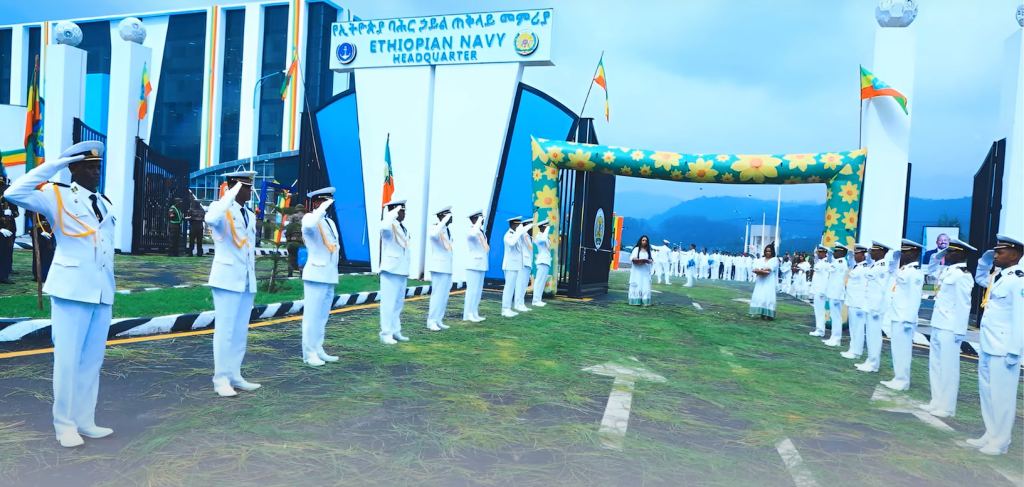By Mistir Sew
Copyright ethiopia-insight

A TPLF insider claims Abiy Ahmed is leading Ethiopia toward another war
A former senior TPLF official delivers a grim forecast: another war between Ethiopia and Eritrea “appears inevitable.” In a wide-ranging interview, he describes a scenario where Abiy Ahmed is not just preparing for conflict, but treating it as both a personal crusade and a strategic necessity.
At the heart of it all lies a single obsession: a port.
The insider describes a two-track strategy: tactically, a war with Eritrea offers a convenient diversion, “a way to distract both the public and the international community” from Ethiopia’s deepening political and economic troubles. But strategically, it is far more deliberate. “The Tigray war was a stepping stone,” he asserts. “Assab was in his mind even before the 2018 rapprochement with Eritrea.”
Notably, in September 2018, soon after taking office and sealing peace with Eritrea, Abiy paid one of his first visits to the port of Assab, an unmistakable signal of Ethiopia’s designs on the facility. In 2019, he launched the construction of a naval force, whose headquarters was inaugurated last week.
He portrays Abiy as “a narcissist” obsessed with legacy. Unlike the GERD—slated for inauguration this September and forever tied to Meles Zenawi—Abiy craves a signature achievement of his own. According to the insider, that ambition centers on Assab, Eritrea’s prized Red Sea port. “He is determined to acquire a port at any cost,” the insider warns. “Even if it comes at the immense expense of Ethiopian lives.”
Broken Pact
The insider claims there was once a secret pact: eliminate the TPLF, and President Isaias Afwerki would reward Abiy with unrestricted access to Assab. But the failure to completely crush the TPLF forced Abiy to sign the Pretoria Agreement, severing the two strongmen’s strategic alignment. “Isaias reneged on their clandestine agreement,” the insider claims. Relations worsened when Eritrea reportedly intercepted Azerbaijan-sourced weapons bound for Ethiopia, an episode that brought “great humiliation” in Addis Ababa.
“Abiy is a gambler,” the insider warns. “He lacks timing and balance.” He describes Ethiopia’s leader as recklessly bent on his goal, even if it means “human wave tactics to force Eritreans to run out of bullets.” But he cautions that such a war could “boomerang”, destabilizing not only Ethiopia but the entire region.
“Some people think there are many combatants there. This is wrong. War is not about the number of combatants. War entails many things. It is not about being prepared or not: there is the factor of population, economy, and power. A war can be completed at any moment and in a short time,” Abiy declared months before the outbreak of the Tigray war. Contrary to his expectations, however, the conflict dragged on for two years, causing staggering casualties and devastation unparalleled in the Horn’s recent history. Recent statements from the Ethiopian government offer little indication that Ethiopia’s strongman has since revised his views.
Countdown Begins
When asked about timing, the insider is blunt: “The political statement has been finalized. The PR has been communicated. The diplomatic groundwork has been laid. The only thing left is to pull the trigger.” He believes conflict could erupt “in a few months, or a few days.”
The insider also details Abiy’s strained relations with the TPLF. After Pretoria, Abiy sought Tigray’s cooperation in joint offensives,, first against Fano militants, then against Eritrea. The TPLF rejected both. “You were lovers,” he imagines the Tigrayans saying to Abiy and Isaias. “You massacred us together. Now we don’t know the reason for your falling out. We don’t want to be part of this war.”
He links a split within the TPLF leadership to this tension. “Tsadkan and Getachew pushed for it,” he says, but the broader party refused alignment with Abiy. Now, the insider says, Tigray has adopted a policy of strategic neutrality: no formal military alliance with Eritrea, but a détente, “an agreement not to attack each other.”
Pretoria Collapses
“Only the naïve believe the Pretoria Agreement still exists,” the insider declares. In his view, Abiy has systematically dismantled it, delegitimizing the TPLF, unleashing anti-Tigray propaganda, and training new forces against them.
He recounts how, months after Pretoria, the federal government deliberately withdrew troops from border zones with Eritrea, tacitly letting Eritrean forces move in and occupy the vacated positions. This, he argues, was done in anticipation of renewed clashes between the TPLF and Eritrea. “But the Tigrayans handled it wisely,” he says. “They avoided conflict despite provocation.”
With war looming, Isaias is recalibrating his approach to Tigray.
The insider views the recent thaw between Tigray and Eritrea as a form of cautious reciprocation, not bold outreach, but a subtle, strategic response to shifting regional winds. He describes the TPLF-TDF’s approach as “a wise, very cautious opening,” likening it to “leaving the door slightly open, giving a green light.”
It’s not a formal alliance, he insists, but a survival tactic, a move designed to “avoid another encirclement.” For now, the relationship is confined to a fragile détente, “an agreement not to attack each other.” It is less a partnership than a pause: “not yet formalized, but easily transformable.”
International Paralysis
The insider is scathing about the global response. “The West doesn’t want Pretoria to collapse,” he says. Yet the international community’s failure to hold Abiy accountable has only emboldened him. Moves such as deregistering the TPLF and funding Tigrayan ex-TDF militants in Afar—“clear provocations contrary to Pretoria’s stipulations”—have gone largely unchecked.
He suspects Western powers, despite public concern, have reluctantly given “tacit approval” to Abiy’s moves against Eritrea, viewing Ethiopia as too strategically vital to restrain.
Yet Ethiopia is not acting alone. The insider names the United Arab Emirates as a key enabler of Abiy’s ambitions. He argues that, having lost sway in Eritrea, Sudan, Djibouti, and Somalia, the UAE now backs Abiy as its Red Sea proxy, creating a “confluence of interests” that has emboldened Ethiopia’s leader.
Diplomatic Fallout
The insider dismisses claims that Ethiopia’s isolation stems from foreign plots, especially Egyptian meddling. Instead, he blames Abiy’s “diplomatic blunders”: tying himself too closely to the UAE, alienating Sudan and Djibouti, and antagonizing Somalia with the Somaliland MoU. “They’re merely taking advantage of problems Abiy unnecessarily created,” he says. “Ethiopia has technically caged itself.”
If the insider’s warnings prove accurate, the Horn of Africa could be on the brink of yet another devastating war: one born not of necessity, but of ego, ambition, and failed alliances. In his telling, Abiy’s Ethiopia isn’t drifting toward conflict; it’s marching there, eyes wide shut.
And the world, for now, seems content to watch.
Query or correction? Email us
While this commentary contains the author’s opinions, Ethiopia Insight will correct factual errors.
Main photo: Inauguration of the Ethiopian Naval Forces Headquarters, 6 September 2025. Source: social media.
Published under Creative Commons Attribution-NonCommercial 4.0 International licence. You may not use the material for commercial purposes.



